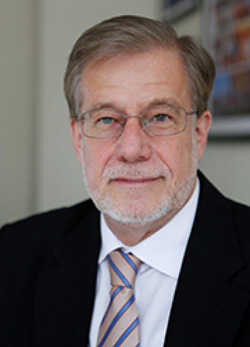ID :
332784
Fri, 06/20/2014 - 13:31
Auther :
Shortlink :
https://oananews.org//node/332784
The shortlink copeid
SDC DIRECTOR OF COOPERATION MARKUS WALDVOGEL GIVES INTERVIEW

Ulaanbaatar /MONTSAME/ Mongolia and Switzerland are celebrating 50th anniversary of the diplomatic relations and 10th jubilee of the Swiss Development Cooperation in Mongolia.
To commemorate the dual anniversaries, the Swiss Cooperation Office in Ulaanbaatar has planned a series of cultural programmes throughout 2014. SDC Director of Cooperation and Swiss Consul General Markus Waldvogel has given an interview in conjunction with the events, and the interview was posted on the SDC’s website on Thursday.
Q: What events and measures are being organized to mark the double anniversaries?
A: I think the 50th anniversary of diplomatic relations between Mongolia and Switzerland is an important event to be widely celebrated. It has also been 10 years since the Swiss Agency for Development and Cooperation (SDC) officially opened its Cooperation Office in Mongolia.
To celebrate these anniversaries, SDC is holding a number of cultural events. To start with, we organized a reception for high-level delegates from the two countries on 21 May in Ulaanbaatar.
The next event was a photographic exhibition held on 23 May illustrating the similarities in nature, landscapes and the lifestyles of the people of Mongolia and Switzerland. The exhibition remained open for the public in Chingis Square for three days. The exhibition then travelled to western aimags, where our main activities are concentrated.
Q: I heard that a significant cultural programme is to be presented in cooperation with the Arts Council of Mongolia.
A: Yes. Among all the planned activities, we give high priority to the " Agula" music event, organized in partnership with the Arts Council of Mongolia. As part of the event, Switzerland's Heiri Kaenzig Quintet and Mongolian ethno-jazz band Arga bileg held a joint performance on 29-30 May at the Opera and Ballet Theatre in Ulaanbaatar. We were keen to see how Swiss and Mongolian artists performed new compositions featuring a fusion of modern and traditional music. The groups will also perform in Switzerland in September and October.
Q: I heard that a joint album will be produced.
A: The Swiss and Mongolian groups will record an album at the "White Arch” studio in Ulaanbaatar, which will be produced in Switzerland. It will consist of six musical compositions by the Heiri Kaenzig Quintet and T. Purevsukh from Arga bileg, as well as four newly arranged compositions of their best musical works.
Q: Does the Swiss quintet also perform this style of music? Is it a famous group in Switzerland?
A: The band also performs ethno-jazz music. In western countries, Mongolian art is generally known for its traditional style. But this time, Arga bileg is performing with these Swiss artists and will have a unique opportunity to show the western world that Mongolians are developing both their traditional and modern arts.
Q: It's great that this cultural programme has opened a gateway to connect Mongolians with the people of Switzerland through culture and the arts. What other activities are planned?
A: As you said, one of the objectives of our cultural programmes is to connect the people of our two countries through cultural exchanges. In order to do this, we look for opportunities to support the development of Mongolia's art and culture sector, supporting artists with more opportunities.
Q: Have you seen traditional Mongolian artistic performances? What is the Swiss-Mongolian joint performance like?
A: The performance is unique, interesting and innovative, and generates good feelings between people from both countries.
Q: Mongolians are familiar with SDC's work in Mongolia. I personally knew of a number of projects on combating desertification, supporting sustainable artisanal mining and agricultural projects, all aimed at solving critical problems in Mongolia. I hope this art and culture project will also generate tangible results.
A: SDC allocates one percent of its total budget to support the cultural sector in its partner countries. This means we are open to financing projects that contribute to the development of art and culture in Mongolia. This year, we are financing the joint Swiss-Mongolian musical event to mark the 50th anniversary of diplomatic relations between the two countries. In June, we will also announce a call for project proposals in the art and culture sector.
Q: Does that mean that artists who want to undertake artistic works but who face financial difficulties will be able to approach your organization?
A: Yes. If people have proposals and projects, they can approach us. We will review the projects via an open selection process and then finance selected projects that have the potential to represent Mongolia to the world.
Q: How do you see the development of SDC's activities in the future? Are you moving into other priority sectors?
A: As of now, our programmes are planned until 2020. We are currently working on three main domains. We focus on food security and agriculture, and providing support for the effective and sustainable use of pastureland through herders' self-governing bodies. We also have a very successful project in the potato sector, implemented in partnership with the Government of Mongolia. As a result of the project, Mongolians are now self-sufficient in domestic potato production.
We also implement projects targeting vocational education and training, focusing on the training of unskilled workers to match labour market demands. The third area is supporting good governance and decentralization reform in Mongolia.
Mongolia's economy has grown rapidly in recent years. This means that there might not be a need for international development and cooperation in the future. At that time, Switzerland might cooperate with Mongolia in the fields of science, trade, commerce and industry.





